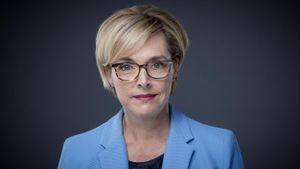Recent political turmoil within Catalonia has come to light, centering on allegations of sexual harassment and power struggles among key figures associated with the CUP (Candidatura d'Unitat Popular). Accusations have emerged from former CUP councilor Toni Flores, who has been publicly charged with harassment by former member Sònia Pérez, alongside claims of complicity involving ex-mayor Dolors Sabater. This controversy is not isolated, as it reflects broader tensions within regional governance and party dynamics.
Sònia Pérez's allegations date back to 2018 and 2019, when she asserts she faced sexual harassment from Flores, asserting he abused his position of power. The public declaration of her experience has prompted significant discourse, especially since she also pointed to Sabater, accusing her of covering up the incidents and failing to act when the issues were brought to her attention.
Responding to Dolors Sabater's call on social media encouraging victims of harassment to come forward, Pérez tweeted, "What greater temptation is there than to continue being silent? How costly it is to complicate life and be delegitimized and made to doubt one’s own memory and experience." This strong rebuke has sparked discussions across various political channels concerning the handling of harassment claims.
Following her accusations, the CUP acknowledged the severity of the situation, admitting they had previously erred by stating no harassment had taken place. They have now offered external support to Pérez, signaling substantial evolution within the organization's approach to such sensitive allegations.
On another front, the political climate continues to heat up with Sílvia Orriols, the current mayor of Ripoll, alleging political interference from Salvador Illa, the President of the Generalitat. Orriols claimed Illa attempted to undermine her administration by advocating for his close associate, Enric Pérez, to lead the new municipal government. This interference raises questions surrounding democratic processes and the integrity of local governance.
"When Illa pointedly told me he would govern for the people of Ripoll, he meant it," remarked Orriols, sharing her perspective on the confrontation. Her leadership has faced substantial opposition, leading to her decision to call for confidence votes, which have failed to stabilize her position amid regional strife.
Political dissent now brews as Junts and ERC appear poised to potentially transfer governance to the PSC by forming coalitions against Orriols. The current situation could see the PSC regain control of Ripoll, underscoring the fragile nature of allegiances and power struggles within Catalonia's political framework.
The situation has prompted notable responses across local parties, particularly from Xavier García Albiol, the current mayor, who criticized Sabater: "An expert at giving lessons to others, selling advice she doesn’t follow herself." This pointed commentary highlights not only the personal conflicts but also the inter-party dynamics complicate the broader governance picture.
With multiple allegations surfacing, the CUP finds itself at the center of yet another scandal, following similar accusations of misconduct within its ranks. The party now faces scrutiny over its ability to manage such crises effectively and the need for genuine reform to restore trust among voters.
These recent events will likely have lasting impacts on the regional political climate, as parties must now navigate the dual landscapes of accountability for past behaviors and the forging of future alliances. The ramifications of these allegations extend beyond individual accusations and reflect inherent issues within political structures, highlighting the pressing need for change.
Overall, the wave of allegations and ensuing political fallout prompts urgent discussions about harassment and political integrity across Catalonia, signaling both the necessity for accountability and the potential for reform amid rising tensions within local governance.



